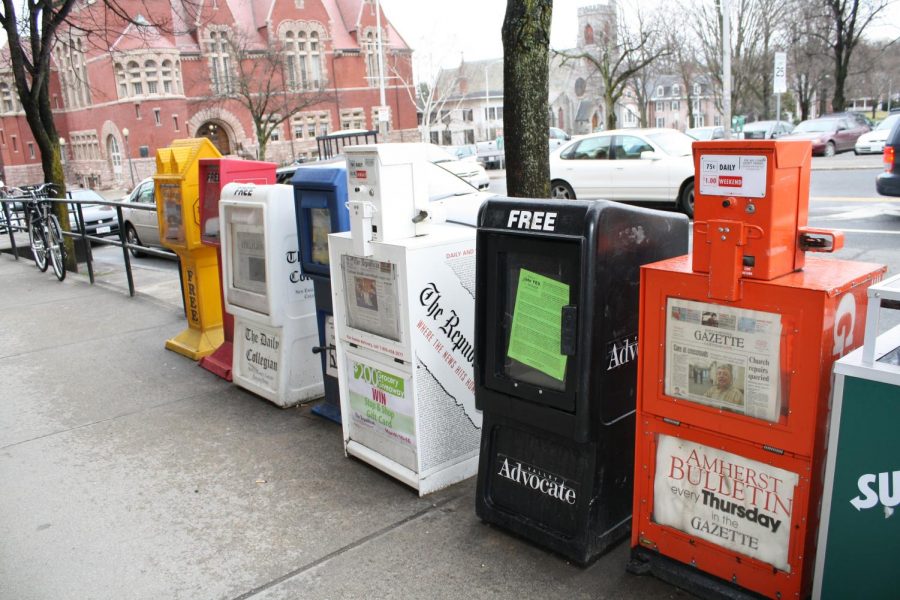The COVID-19 pandemic has taken a hold of our nation. As a result, we’re stuck inside our homes: bored, lonely and maybe a little sad. With the days dragging on, many people may want to drown out the incoming reports. However, amidst this chaos and confusion, it is more important than ever before that we do not forget about our civic duties.
The news is not easily digestible right now. While obsessing over the headlines may threaten one’s sanity, it is important that we stay in the know. In such unprecedented times, disinformation is seriously dangerous. Right now, the best way to protect yourself is to avoid speculation and rumors and consume trusted, reliable journalism. Take the time to unplug and clear your brain, but stay informed. Make sure you have a comprehensive understanding of what is happening both nationally and worldwide. This includes reading up on how your local, state and federal governments are responding to the pandemic.
Ideally, we all would stay informed throughout the year, not just in the midst of a pandemic. Unfortunately, many often neglect this responsibility and turn off the news in boredom. Additionally, many claim a disinterest in politics. In the past I’ve heard peers claim that since policy decisions will likely not affect them, they choose not to follow politics. Many do not realize that choosing to be apolitical is testament to one’s privilege.
Every aspect of our lives is political. Politics affect everything from tax policy to the air we breathe. Policymaking may seem far removed to some, but unfortunately, poor policy decisions often have the worst effect on the underprivileged. In Flint, Michigan, government officials compromised the accessibility to safe water for economic gains, later ignoring the citizens’ pleas for help. The federal government’s failure to create a comprehensive immigration system has led to hundreds of children being held in border detention centers, described by Vox as “horrifying.” Following the catastrophic effects of Hurricane Maria in Puerto Rico, the government’s slow response left many without water or a home. The list goes on. To these individuals, choosing to be apolitical or impartial was a luxury that they could not afford.
While the coronavirus will surely affect all, it will be more detrimental to some more than others. To some, the next few months will mean missing out on school and social gatherings, instead sitting home, living via Zoom and Netflix. To others, the economic and physical effects will be devastating. We are already seeing the results of this: many low-income workers have not been able to heed the CDC’s advice to stay home, as they are unable to take time off work if they want to provide for their families. This puts these workers at a higher risk of contracting the virus and spreading it to their neighbors and families. With schools closing, many low-income children will lose their access to breakfast and lunch and may be without the internet access needed to maintain their online studies. In the coming months, many will be without work and facing economic turmoil. We must recognize these inequities and plan to combat them.
We cannot sit back and ignore the responsibility we hold to protect our neighbors. As citizens, we are not powerless. Taking the time each day to learn what is going on in your community and country is the first step in becoming an active, politically conscious citizen. Of course, voting is the biggest power we hold. While November seems far off, now is not the time to place the upcoming election on a back burner. Our government’s actions during these trying times may ultimately serve as a basis for one’s vote. In the coming months, local, state and federal governments will make decisions that will determine our country’s future. Will governments mandate that citizens stay indoors to slow the virus’ spread? Will the poor and underprivileged receive the health care and economic support they need to survive? Or will greed lead to officials sacrificing their citizens’ wellbeing for their own selfish, economic gain?
The world is a scary place right now. It may be tempting to tune out what’s happening globally and politically and change the channel to something brighter. We don’t need to be obsessing over the news, but we have to uphold our civic duties. Keep reading, keep thinking critically and keep thinking about November.
Emma Garber is an Assistant Op/Ed Editor and can be reached at [email protected] and followed on Twitter @EmmaGarber1.




















